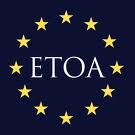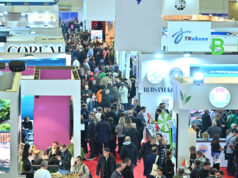 Tom Jenkins, Executive Director of the European Tour Operators Association said: “It is important to emphasise how well London is doing compared with other Olympic Games, and what good news there is for potential visitors.”
Tom Jenkins, Executive Director of the European Tour Operators Association said: “It is important to emphasise how well London is doing compared with other Olympic Games, and what good news there is for potential visitors.”
1) London is breaking all records for foreign guests staying in hotels during the Games.
Hard figures are difficult to come by, but our soundings indicate that London hotels are being occupied by more than 60,000 foreign guests per night during the games. Sydney had about 25,000, Athens 13,000 and Beijing 27,000 per night. This equates to more than 45,000 hotel rooms: more than three times the total bed-stock of Athens.
Jenkins continued, “This is below what would normally be expected. London would anticipate more than 300,000 foreign visitors a day in August, the vast majority of them staying in hotels. But early August in London is not normal: judged against previous Olympics, this is a major achievement.”
2) LOCOG is bringing more members of the “Olympic Family” to London than have ever attended in the past.
An important sub-group of these visitors is the “Olympic Family”: a term covering Olympic officials, government representatives, sponsors, sponsors’ guests, media and the relatives of the participants.
Whilst hard numbers are difficult to establish, ETOA estimates that this class of person occupied roughly 8,000 rooms in Sydney, 4,000 in Athens and 8,000 in Beijing. It is possible that these people will occupy more than 25,000 rooms in London. This is more than three times more than Beijing and six times more than Athens.
3) London hotels have offered exceptional value for money.
As part of the bid process, London hotels committed to offer the “Olympic Family” hotel rooms at a rate marginally above a benchmark rate measured during August 2008, 2009 and 2010. As two of these years were light in terms of demand, LOCOG has obtained rooms substantially below the market rates that were being charged in 2011. Thus half of the foreign visitors coming to London –such as the IOC, the corporate sponsors and the Press – are enjoying exceptionally inexpensive prices.
The Olympic Family is a product of the Games. As such, it has been thought to be constant in attendance: it appears with the Games, wherever the Games take place. And London is the most connected city to have hosted the games in recent times; it is far easier for Olympic visitors to fly in, attend the event they are interested in, and leave.
“That we have managed to attract far more press, official visitors and other members of the Olympic family must be due to the unique appeal of the investment that has been made in the 2012 Olympics. But such investment also took place in Beijng. So a large part of this success is down to the hotels offering these people great value for money,” said Jenkins.
4) LOCOG has sold its allotment of hotel rooms extremely effectively.
LOCOG made initial bookings for roughly 45,000 rooms per night for the “Olympic Family”. In doing so it was acting in the same manner as a wholesale tour operator: it secured rooms for third parties to sell. These third parties were free to book what they wanted for the period they wanted. There were some big block bookings for multiple rooms, but specialised correspondents may have needed only three nights’ accommodation, relatives two nights and corporate sponsors just one night. Thus the allotment was filled sporadically with individual bookings on virtually an individual night basis.
In these circumstances, it was a major feat of co-ordination to arrive at a stage where, on average, 25,000 rooms per night will be used. A yield of 60% of the allotment is an achievement far beyond the industry norm.
5) Unlike any other Olympic city, London remains open for last minute business.
Most Olympic host cities run close to capacity during the Games. London, with over 125,000 hotel rooms, has still has plenty of accommodation available throughout the Games in hotels of all categories. Many hotels are offering rates at or below what they were charging last year. It is possible to book tickets at theatres and make reservations at restaurants more easily than at any time during the last year. Incoming flights are available at very low prices: you can fly into London during the games from Germany for as little as €50. No other Olympic Games has been so open for last-minute business.
6) London has more than enough space for visitors.
There is a mis-perception that London will be full in the early part of August. It is well known in the tourism industry that every Olympic Games scares away conventional tourists. Whatever the reality, potential visitors think that the destination will be crowded, overpriced and difficult to get around.
An Olympic city becomes a place devoted to an event which makes it different, and which has a different appeal. It is there for Olympic enthusiasts. This has had a profound effect on demand for London in 2012. In August we would normally expect 300,000 foreign and 800,000 domestic tourists to be in the capital every day. They are not expected to arrive.
Furthermore Transport for London has been assiduous at ensuring that as many Londoners as possible are working from home and only coming in to the capital if their work is absolutely necessary. If only 20% of the 3 million people who travel to work each day are persuaded not to travel, space for a further 600,000 passengers will be freed up.
Filling this daily gap are the 500,000 Olympic ticket holders, of which 100,000 are attending events in central London. Whilst many more people may come to join in the “Olympic Spirit”, the London of shops, restaurants, theatres and attractions does not look full.
Tom Jenkins concluded: “In the context of Olympic tourism, London is set to deliver an outstanding performance. And there is still plenty of space: this is excellent news for last-minute visitors to London”.











